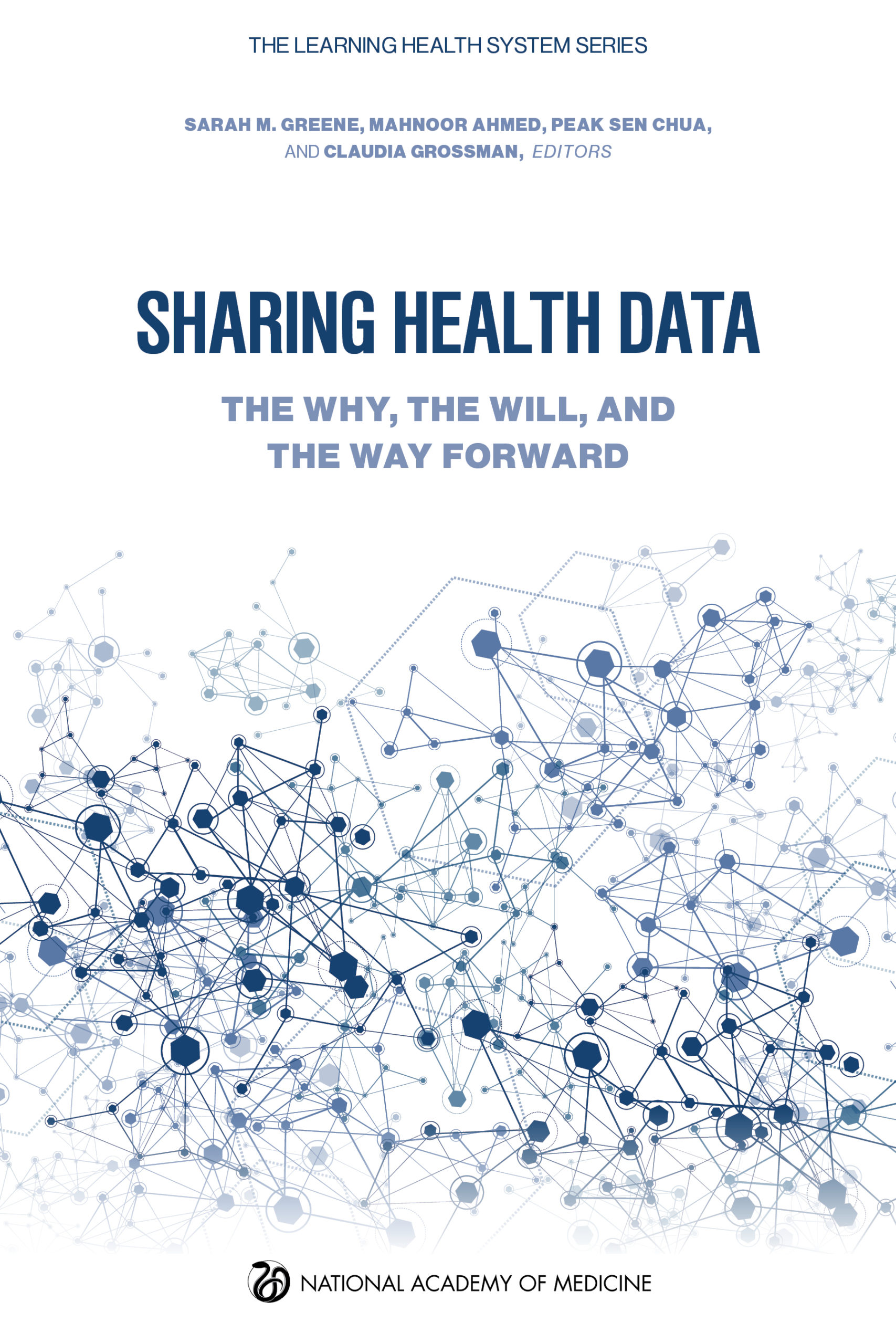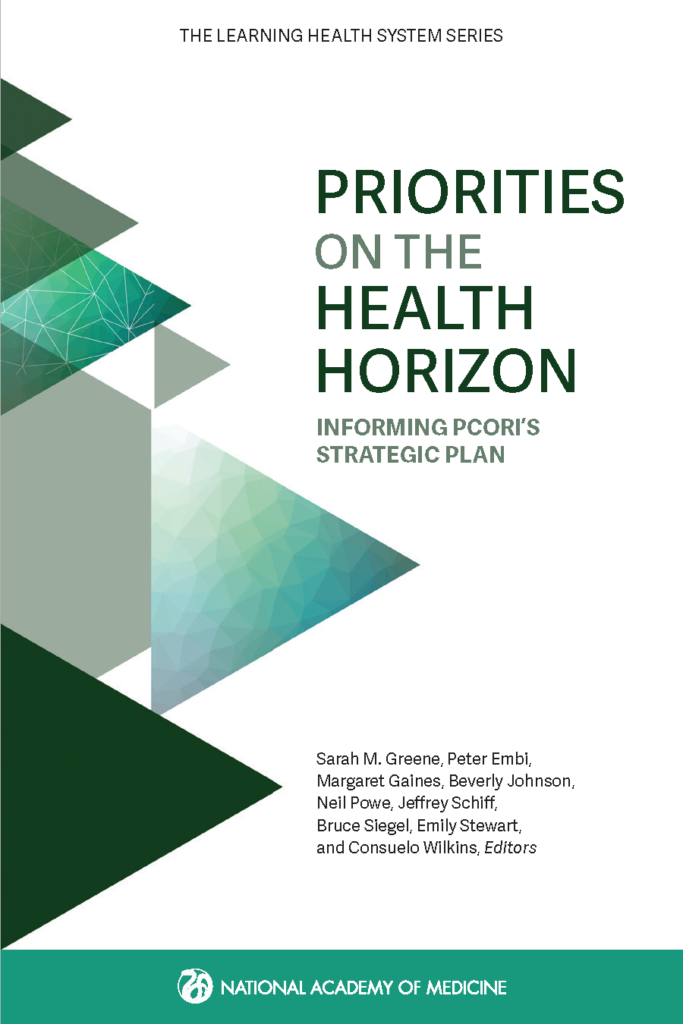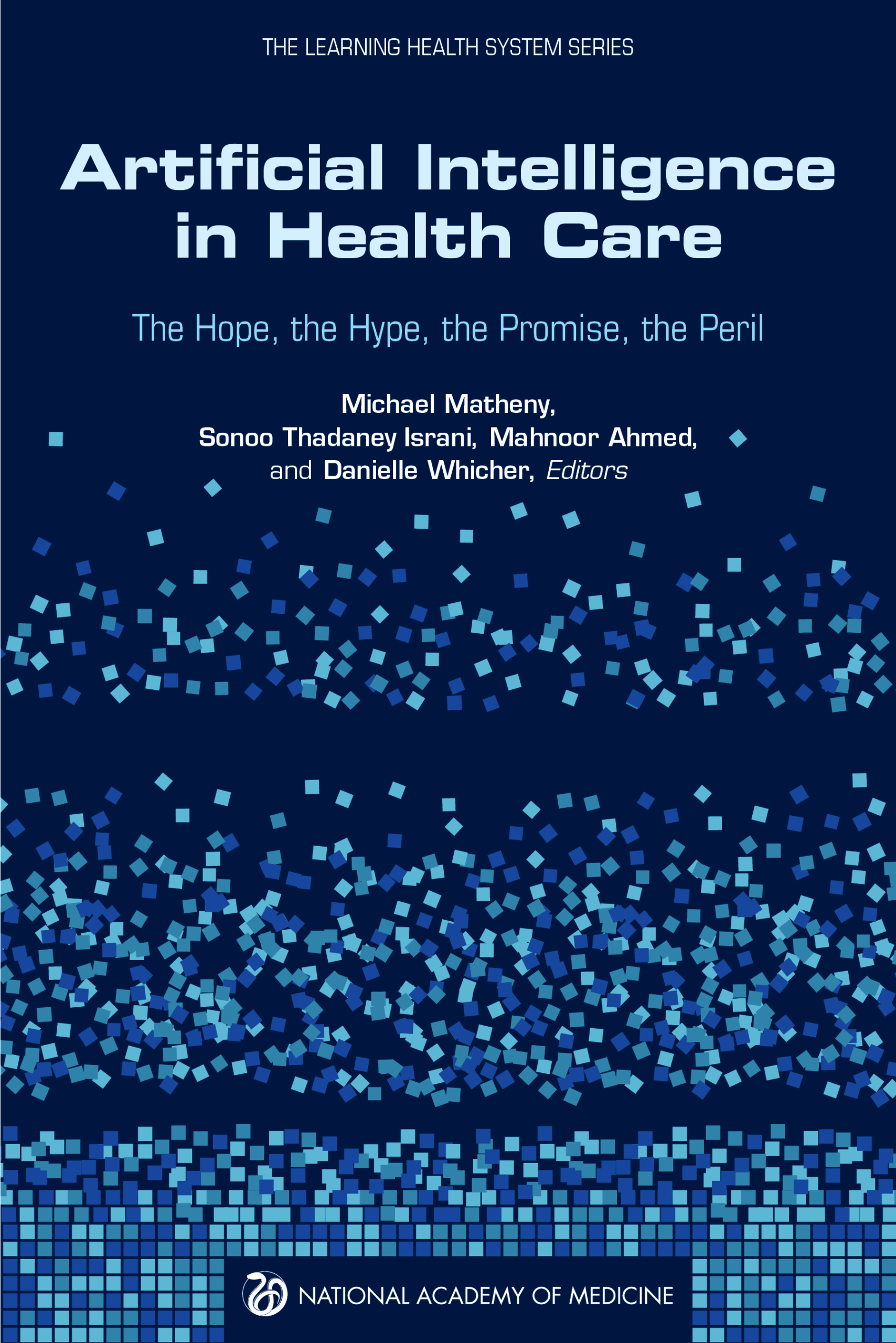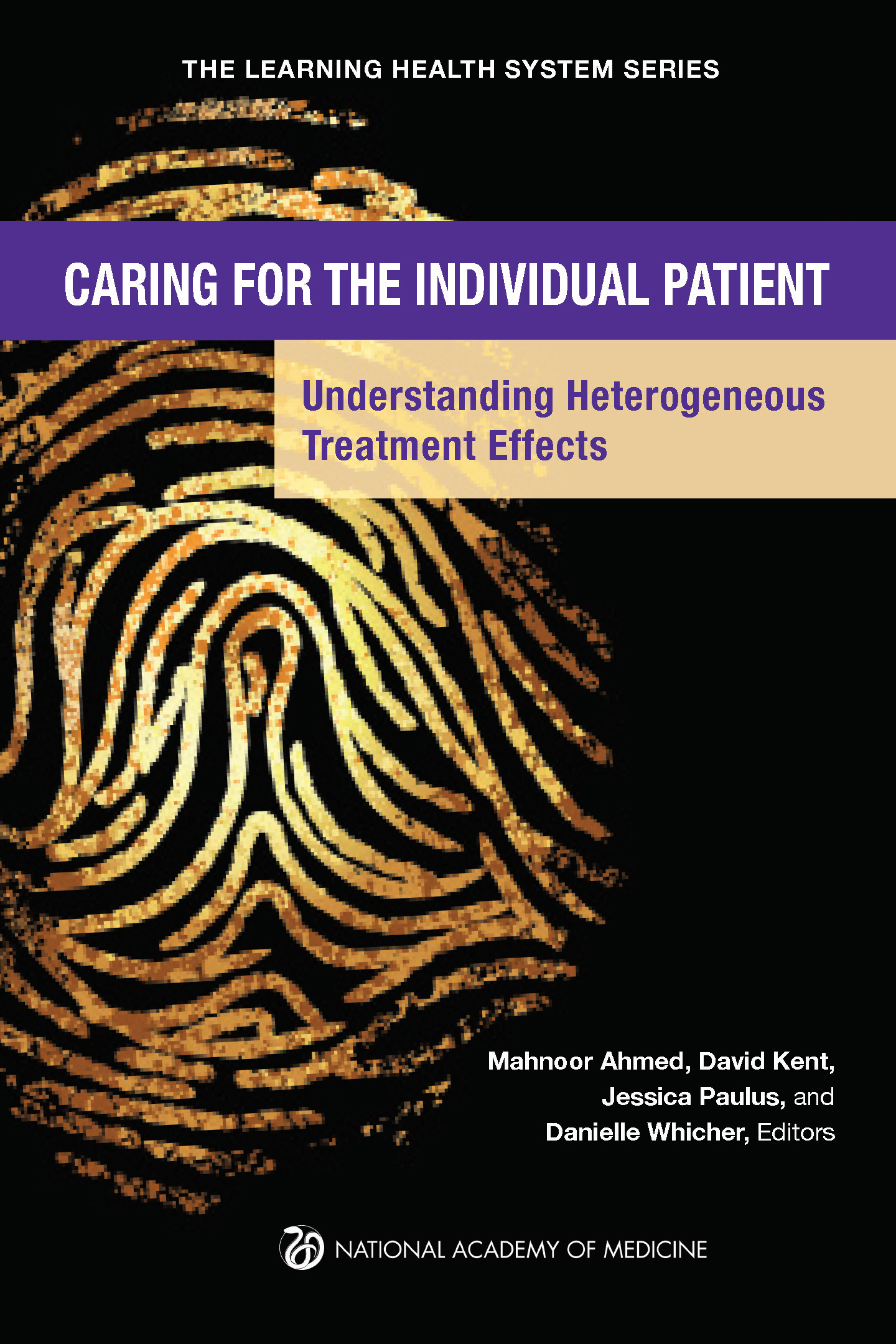
The National Academy of Medicine’s Leadership Consortium: Collaboration for a Value & Science-Driven Health System provides a trusted venue for national leaders in health and health care to work cooperatively toward their common commitment to effective, innovative care that consistently adds value to patients and society. Consortium Members are leaders from core stakeholder communities brought together by their common commitment to steward the advances in science, value and culture necessary for a health system that continuously learns and improves in fostering healthier people.
"A learning health care system is one in which science, informatics, incentives, and culture are aligned for continuous improvement, innovation, and equity - with best practices and discovery seamlessly embedded in the delivery process, individuals and families active participants in all elements, and new knowledge generated as an integral by-product of the delivery experience."
NAM Leadership Consortium Charter
Emerging Stronger After COVID-19: Priorities for Health System Transformation
In response to the COVID-19 pandemic and the undeniable fractures and weaknesses it has exposed in the American health care system, the NAM has undertaken a sector-by-sector review of every aspect of the health care system, the weaknesses that existed prior to COVID-19, how the sector has responded to the pandemic, and opportunities for strengthening and transforming how we deliver health care in America after COVID-19.
The first six papers in this series are now available: public health; care systems; health care payers; clinicians and professional societies; quality, safety, and standards organizations; and biomedical research.
Learn more about the series and register to receive updates>>
Action Collaboratives
Advancing health and health care through cooperative projects
Action Collaboratives engage key stakeholders with similar interests and field responsibilities in cooperative activities to advance science and value in health and health care. These ad hoc convening activities aim to foster sector information sharing and cooperation in accelerating the evolution of a continuously learning health system, and progress on findings highlighted in prior Academies reports of mutual priority. Action Collaboratives currently support activities in four overlapping and complementary areas:
Supporting the conditions necessary for transforming real world experiences into valuable data that are routinely used to improve population and patient-level health.
Fostering improvements and innovation in digital infrastructure so that health technology is developed and applied in ways that consistently lead to better population and patient-level health.
Supporting payment systems that incentivize value and population health.
Advancing a culture of health equity and engagement that places the needs of people and communities at its core.
Learn more
Participation
Employing an inclusive, “collaborative without walls” approach—balanced with practicality around individual projects—these convening activities bring together stakeholders with mutual interests to harness their substantial talent and expertise in the identification and development of cooperative efforts most practical and strategic to field advancement.
Activities
Projects of the Action Collaboratives are participant identified, driven, and supported, with facilitation by Consortium staff. They vary in structure and content to meet the needs of specific issues and challenges. Some focus on identifying issues of common interest and marshaling needed leadership, expertise and resources; others aim at cooperative development of tools needed for progress; and others seek to highlight strategies, through individually authored literature summaries, technical discussions, and cooperative issue reviews. Certain activities lead to proposals for formal workshops and studies for consideration by the NAM and the Academies.
Approach
Consortium activities are both informational and project focused. Projects are participant generated and supported, NAM-staff facilitated, and participant executed and “owned.” Products are ascribed to the engaged individuals. They are not products of the NAM or the Academies. Endorsement and use is at the discretion of individual organizations.
Recent Reports

Sharing Health Data: The Why, the Will, and the Way Forward
Sharing health data and information across stakeholder groups is the bedrock of a learning health system. As data and information are increasingly combined across various sources, their generative value to transform health, health care, and health equity increases significantly. Health data has proven its centrality in guiding action to change the course of individual and population health, if properly stewarded and used.
This Special Publication features some of these novel data sharing collaborations, and has been developed to provide practical context and implementation guidance that is critical to advancing the lessons learned identified in its parent NAM Special Publication, Health Data Sharing: Building a Foundation of Stakeholder Trust. The focus of this publication is to identify and describe exemplar groups to dispel the myth that sharing health data more broadly is impossible and illuminate the innovative approaches that are being taken to make progress in the current environment.
Social Media Toolkit | Key Messages | Visit Publication Website

Priorities on the Health Horizon: Informing PCORI’s Strategic Plan
To inform the next steps in their organizational strategy, the Patient-Centered Outcomes Research Institute (PCORI) enlisted the NAM to leverage its deep experience in convening experts on matters of significant national importance, including its longstanding thought leadership role in the realization of a learning health system.
This Special Publication outlines high-priority emerging issues in health, health care, and biomedical science and technology and offers cross-cutting opportunities to inform and shape PCORI’s strategic planning process to improve the effectiveness, efficiency, and equity of the U.S. health care system. Moving forward, building the capacity to continuously improve learning and sharing throughout the system will entail stakeholders working together as seamlessly as possible. The NAM and PCORI worked together to facilitate an expansive dialogue with key stakeholders ad engender trust through a focus on shared commitments to progress on improving health for all Americans in the decade ahead.

Health Data Sharing to Support Better Outcomes: Building a Foundation of Stakeholder Trust
The effective use of data is foundational to the concept of a learning health system—one that leverages and shares data to learn from every patient experience, and feeds the results back to clinicians, patients and families, and health care executives to transform health, health care, and health equity. More than ever, the American health care system is in a position to harness new technologies and new data sources to improve individual and population health.
We can improve together by sharing and using data in ways that produce trust and respect. Patients and families deserve nothing less.
Key Messages | Social Media Toolkit | Visit Publication Website

Artificial Intelligence in Health Care: The Hope, the Hype, the Promise, the Peril
The emergence of artificial intelligence (AI) in health care offers unprecedented opportunities to improve patient and clinical team outcomes, reduce costs, and impact population health. While there have been a number of promising examples of AI applications in health care, it is imperative to proceed with caution or risk the potential of user disillusionment, another AI winter, or futher exacerbation of existing health- and technology-driven disparities.
This Special Publication synthesizes current knowledge to offer a reference document for relevant health care stakeholders. It outlines the current and near-term AI solutions; highlights the challenges, limitations, and best practices for AI development, adoption, and maintenance; offers an overview of the legal and regulatory landscape for AI tools designed for health care application; prioritizes the need for equity, inclusion, and a human rights lens for this work; and outlines key considerations for moving forward.
AI is poised to make transformative and disruptive advances in health care, but it is prudent to balance the need for thoughtful, inclusive health care AI that plans for and actively manages and reduces potential unintended consequences, while not yielding to marketing hype and profit motives.

Caring for the Individual Patient: Understanding Heterogeneous Treatment Effects
Evidence-based medicine arose from a clear need and represents a major advance in the science of clinical decision-making. Despite broad acceptance of evidence-based medicine, however, a fundamental issue remains unresolved: evidence is derived from groups of people, yet medical decisions are made by and for individuals. Despite persistent assertions from clinicians that determining the best therapy for each patient is a more complicated endeavor than just picking the best treatment on average, traditional approaches have been overly reliant on the average effects estimated from the outcomes of clinical trials.
For evidence to be more applicable to individual patients, we need to combine methods for strong causal inference (first and foremost, randomization) with methods for prediction that permit inferences about which particular patients are likely to benefit and which are not. Better population-based outcomes will only be realized when we understand more completely how to treat patients as the unique individuals they are.
Download the Special Publication | Key Messages | Social Media Toolkit
Leadership Consortium Staff
J. Michael McGinnis, Executive Director | Bio and CV
Laura Adams, Senior Counsel, Science and Technology | LAdams@nas.edu
Mahnoor (Noor) Ahmed, Associate Program Officer, Science and Technology | MAhmed@nas.edu
Ayodola Anise, Portfolio Director, Value and Culture | AAnise@nas.edu
Ariana Bailey, Senior Program Assistant | ABailey@nas.edu
Michael Cocchiola, Research Associate | MCocchiola@nas.edu
Elaine Fontaine, Consultant | EFontaine@nas.edu
Jennifer Lee, Visiting Scholar | JLee@nas.edu
Allison Lester, Senior Program Assistant | ALester@nas.edu
Olivia Matongo, Program Officer | OMatongo@nas.edu
Asia Williams, Research Associate | AsWilliams@nas.edu

